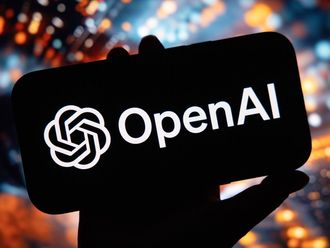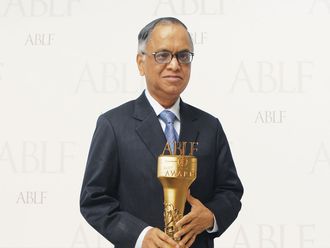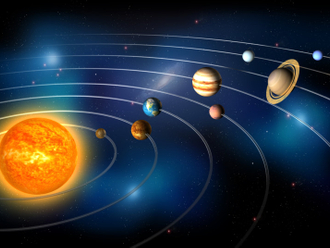
Diplomacy, the art and science of negotiation between nations, is undergoing a seismic shift. Artificial Intelligence (AI) is emerging as a transformative force, reshaping how countries engage with one another. Nowhere is this transformation more critical than in hydro-diplomacy, where the stakes involve nothing less than access to life-sustaining water. If diplomacy is a balancing act, hydro-diplomacy is tightrope walking in a storm.
The global water crisis is intensifying, with climate change exacerbating its severity through erratic rainfall patterns, prolonged droughts, and diminishing freshwater reserves. Around the world, nations are grappling with disputes over shared water resources, from the Nile Basin to the Indus River system.
Diplomats tasked with resolving these tensions face a Herculean challenge: negotiating equitable water-sharing agreements amid insufficient data, complex hydrological systems, and competing political agendas. AI could become a transformative tool in hydro-diplomacy, offering a path to more informed, cooperative, and sustainable water governance.
One of the most significant hurdles in water negotiations is the lack of reliable data on water availability, usage, and demand. Water resources are dynamic, influenced by seasonal changes, climate patterns, and human activity. Many countries lack the infrastructure or capacity to monitor these variables comprehensively. Compounding the issue, nations often hesitate to share their water data due to security concerns or mistrust.
Water usage trends
AI can revolutionise this space by, collecting, aggregating and analysing data from diverse sources, such as satellite imagery, sensors, and historical records. For instance, AI-powered systems can process real-time satellite data to monitor river flows, groundwater levels, and precipitation patterns.
By integrating these findings with climate models, AI can predict future water availability and storage under various scenarios, offering diplomats a clearer understanding of the stakes involved. Similarly, AI models can analyse water usage trends, identifying inefficiencies and potential areas for conservation. With accurate and accessible data, negotiators can move beyond rhetoric to evidence-based discussions.
Hydrological systems are inherently complex, involving interactions between natural and human systems. As a result, negotiating water-sharing issues has been a significant challenge for traditional diplomats. AI, however, excels at modelling such complexities, offering valuable insights into how water policies or climatic changes might affect a shared water basin.
Machine learning algorithms can simulate various scenarios, such as the impact of constructing a dam upstream or implementing water-saving technologies downstream. These simulations enable stakeholders to evaluate the trade-offs of different strategies, promoting a shared understanding of potential outcomes.
Moreover, AI can identify vulnerabilities in water-sharing arrangements, such as regions at risk of severe drought or populations dependent on fragile ecosystems. By highlighting these risks, AI can help negotiators prioritise equitable solutions that protect the most vulnerable.
A neutral mediator
Diplomacy requires not only technical expertise but also trust and collaboration. AI has the potential to foster cooperation among stakeholders, even when navigating conflicting goals. This capability highlights AI’s role in facilitating communication and building trust in high-stakes negotiations. In hydro-diplomacy, AI can act as a neutral mediator, providing objective analyses that all parties can trust.
For instance, in disputes over the Nile or the Ganges, AI could offer unbiased data on water flows and propose compromise solutions based on shared benefits. By eliminating perceptions of bias, AI can help reduce tensions and promote constructive dialogue.
AI-driven natural language processing tools can assist diplomats in navigating the cultural and linguistic nuances of negotiations. This has been particularly important in addressing water-sharing issues in the Aral Sea basin between Afghanistan and the former Soviet states. By analysing historical agreements and diplomatic correspondence, AI can recommend phrasing or framing of agreements that aligns with the perspectives of different parties, reducing misunderstandings and fostering goodwill.
Traditional water-sharing agreements often struggle to adapt to changing circumstances, such as population growth or shifting climate patterns. AI can support adaptive governance by continuously monitoring conditions and recommending updates to agreements as needed. For instance, if AI detects a prolonged drought, it could suggest temporary water usage restrictions or alternative sources to ensure equitable distribution.
Additionally, AI can amplify marginalised voices in water negotiations. Civil society, local communities, and indigenous groups often have valuable insights but are excluded from formal diplomacy. AI platforms can integrate their perspectives by analysing inputs from community consultations, social media, or participatory mapping projects. This inclusivity can enhance the legitimacy and effectiveness of water-sharing agreements.
While AI holds immense promise, its deployment in hydro-diplomacy is not without challenges. First, ensuring equitable access to AI technologies is critical. Developing countries, which often face the most severe water crises, may lack the resources to invest in AI infrastructure. Second, the transparency of AI models is paramount. Black-box models that produce recommendations without clear explanations or chain-of-thought can erode trust.
AI in hydro-diplomacy
Finally, ethical considerations must guide the use of AI in hydro-diplomacy. Decisions about water allocation have profound social, economic, and ecological implications. AI must be used to empower human decision-makers, not replace them. Moreover, safeguards are needed to prevent the misuse of AI, such as manipulating or using biased data to favour one party over another.
As the global water crisis deepens, the urgency of effective hydro-diplomacy cannot be overstated. AI offers a powerful toolkit for addressing the complexities of water disputes, from data collection and modelling to communication and adaptive governance. By leveraging AI, diplomats can move beyond reactive crisis management to proactive and collaborative solutions that safeguard water resources for future generations.
As we look to the future, the question is not whether AI will change diplomacy — it already has. The question is how we will use this technology to build a more equitable and sustainable world. The answers lie in thoughtful governance, ethical use, and a commitment to ensuring that AI serves humanity’s shared interests. The water wars of tomorrow can become the water treaties of today — with a little help from AI.












